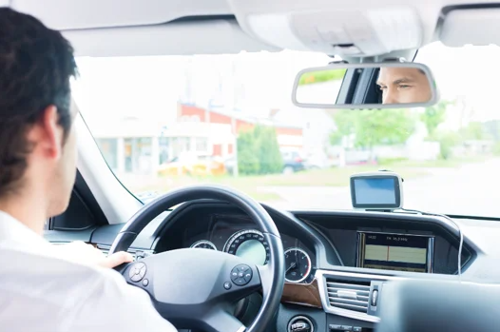Stay up to date with the latest industry insights
Sign up for blog updates

By Thomas MacCallum
Since the NCAA passed the Name, Image, Likeness (NIL) policy in July 2021, college athletes have received thousands of endorsement deals from auto dealerships. While this marketing opportunity can benefit a dealership, it adds additional exposure and complexity to your franchised dealer insurance coverage.
Many auto dealers in college towns have historically provided vehicles to coaches, athletic directors, and other school officials through sponsorships. The new policy allows dealers to offer cars to student-athletes in any sport in return for promotional activities. Imagine having a Heisman Trophy candidate pitching your product.
The policy may lead to drivers, potentially as young as 17, to receive a vehicle for their personal use. Think about it: A teenager with just over one year of driving experience being allowed to operate a new Dodge Charger that goes 150 mph in a town that is new to them. Dealerships must address this new, unique risk.

4 Best Practices for Driving to a NIL Deal
The potential for misuse or unapproved operation of NIL vehicles is substantial and can expose a dealership to significant liability. The new NCAA rule is an interim policy subject to state laws so knowing what’s allowed and enforcing the student-athlete’s agreed-upon responsibilities will be critical to compliance.
Auto dealerships should enforce the following best practices when engaging in an agreement with an NCAA athlete driver:
1. Have a formal lease agreement. When a dealership demo is lent to the student-athlete without a formal lease agreement, the dealership is responsible for any additional liability over the coverage associated with the car — something a dealership may not be covered for under your liability insurance. If you do have demo agreements, they should forbid use of the car by others. They must set the length of time the vehicle can be used and fulfill ongoing proof of insurance requirements.
A lease agreement, on the other hand, will help protect the dealer. With a proper lease agreement, any additional liability is associated with the ownership of the vehicle and would ultimately fall on the bank that backs the car loan. If the dealer does not have separate lease coverage or it is not provided by the financier, the dealer should obtain an additional lease coverage policy. This protects the dealer from exposure to potentially significant liability as the loss of future earnings claims with these athletes can be substantial.
2. Verify driving license. Ensure the driver has a current license in good standing. Pull a motor vehicle record (MVR) to reveal what violations or accidents, if any, they have. All potential drivers should have an MVR reviewed to ensure the dealer is not negligent in entrusting the vehicle to the athlete.
3. Proof of insurance. You want the driver to provide insurance, not you. A lease agreement validates that the driver has appropriate limits which are equal to the dealership’s coverage. Instead, drivers should provide proof of insurance with limits that are a minimum of $100,000/$300,000 with the dealership listed as an additional insured.
Certificates of insurance should be kept current and maintained with the agreement’s documentation. To avoid a student letting coverage lapse, consider adding something to the agreement that requires them to keep the coverage in place.
Have a usage control/agreement. Limit who can operate the vehicle. If it’s a demo, include usage control into the agreement. As you would with any other demo, you’d have an agreement saying, “family members and friends can’t drive the vehicle.” Make sure to add the same stipulation into a lease agreement, which wouldn’t typically have this provision. Be specific and limit use to the vehicle operator only and don’t extend the use to family/friends.